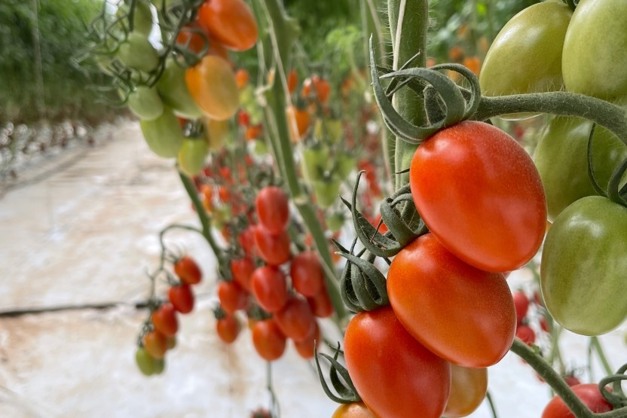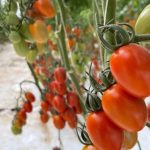There’s been a solid increase in tomato exports from Morocco this season, says Fatiha Charrat, Deputy Managing Director of the Delassus Group: “Moroccan tomato exports reached 690,000 tons this season, up 19% year-over-year, with 58% being non-round tomatoes. The UK imported 122,720 tons in 2024, of which 68% were snack tomatoes, making up over 30% of UK tomato imports. Morocco exports to 46 countries, with the UK alone representing 18% of the total.”
The middle-men are slowly disappearing from the stage, as Charrat explains that the Moroccan tomatoes are now exported directly to the German market. “Historically, Moroccan tomatoes were routed through French importers before reaching Germany. However, this intermediary step is increasingly bypassed. Direct shipments from Morocco to Germany have grown significantly, with volumes rising from 69,800 tons in 2023 to 98,400 tons in 2024 ,with baby plum tomatoes representing 68%.”

According to Charrat, the image of tomatoes from Morocco is improving, increasing demand: “Moroccan tomatoes are now praised for their quality and service level, not just price. Year-round, packaged-at-source shipments are sent directly to high-demand markets like the UK, Germany, and Northern Europe, reflecting the sector’s increased professionalism.”
Of course, dealing with the ToBRFV virus is a challenge that impacts the sector significantly, Charrat states. “The ToBRFV virus, or Tomato Brown Rugose Fruit Virus, caused 15–20% of the losses in 2023–2024. In response, growers focus on resistant varieties and improving yield and quality. Established varieties like Angelle are gradually giving way to newer, more resistant sister varieties.”
“A new social agreement will increase the minimum agricultural wage (SMAG) by 10% by 2026, with the first 5% hike set for April 2025. Some large growers such as Duroc also offer bonuses, free transport, meals, medical care, and educational support for workers’ children.”
The weather has been a cause for concern over the past years, but the government has invested in a solution. “Seven consecutive years of drought have brought Moroccan agriculture to the brink, particularly in the Souss region. Fortunately, the government’s investment in desalination has proven vital. Today, the Souss desalination plant supplies around 40% of Agadir’s water needs. However, desalinated water is three times more expensive than well water, placing an additional financial burden on growers,” Charrat concludes.
For more information:
Fatiha Charrat
Delassus Group
Email: [email protected]
www.delassus.com
